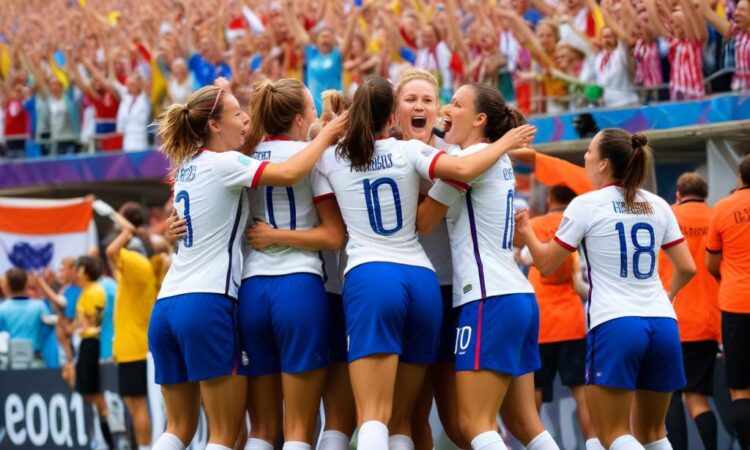The Women’s World Cup: A Celebration of Skill and a Call for Equality
The ongoing Women’s World Cup in Australia and New Zealand has showcased the incredible skill and athleticism of the world’s best female footballers. The tournament has been marked by thrilling matches, upsets, and the emergence of new stars. However, it has also been accompanied by debates about equal pay, gender equity in the sport, and the need for more investment in women’s football.
A Showcase of Talent and Passion
On the field, the Women’s World Cup has delivered on its promise of world-class football. From the electrifying group stages to the high-stakes knockout rounds, fans have been treated to a spectacle of skill, athleticism, and passion. The tournament has been a celebration of the beautiful game, played at the highest level by some of the most talented athletes in the world.
The emergence of new stars has been one of the highlights of the tournament. Players like Sam Kerr of Australia, Alexia Putellas of Spain, and Sophia Smith of the United States have captured the imagination of fans with their dazzling performances. These young talents, alongside established veterans like Marta Vieira da Silva of Brazil and Christine Sinclair of Canada, have inspired a new generation of footballers and captivated audiences globally.
The Struggle for Equality
While the Women’s World Cup has been a celebration of women’s football, it has also highlighted the ongoing struggle for equality in the sport. Despite the growing popularity and success of women’s football, there remains a significant gap in terms of pay, resources, and opportunities compared to men’s football. The disparity is particularly evident in the disparity in prize money awarded to the winning teams in the men’s and women’s World Cups.
The call for equal pay has become a major talking point during the tournament. Players and fans have expressed their frustration with the lack of parity, arguing that women footballers deserve equal compensation for their talent, hard work, and contributions to the sport. The issue has sparked important conversations about gender equity in sports and the need for a more equitable system.
The Future of Women’s Football
The Women’s World Cup has not only been a showcase of talent but also a powerful platform for raising awareness about the need for investment in women’s football. The tournament has highlighted the immense potential of the women’s game and the positive impact it can have on society. Investing in women’s football is not just about fairness; it is also about recognizing the transformative power of sport and its ability to inspire and empower generations to come.
The future of women’s football is bright. The ongoing tournament has demonstrated the growing popularity and global appeal of the game. With continued investment and support, women’s football has the potential to reach even greater heights, inspiring a new generation of players and fans alike. The world is watching, and the future of women’s football is full of promise.
Conclusion
The Women’s World Cup has been a remarkable celebration of the incredible skill and athleticism of female footballers. It has been a testament to the passion and dedication of players and fans around the world. However, it has also served as a powerful reminder of the ongoing struggle for equality in the sport. The need for equal pay, increased resources, and greater investment in women’s football remains a crucial issue. By addressing these concerns, we can ensure that the future of women’s football is bright and that the game continues to inspire and empower generations to come.

